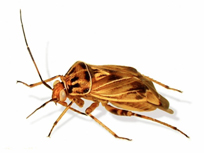|
Chair Scientific Committee: P.G. Mason (Ottawa,
CANADA)
Scientific Committee: B. Broadbent (London, CANADA);
P. Ellsworth (Tuscon, USA); D. Gillespie (Agassiz, CANADA); P.B.
Goodell (Parlier, USA); K. Holmer (Montpellier, FRANCE); B. Foottit
(Ottawa, CANADA); U. Kuhlmann (Delémont, SWITZERLAND); O.
Olfert (Saskatoon, CANADA); L. Williams (Stoneville, USA).
Please submit the title of your oral (15 min) or poster presentation
including an abstract describing the research of the presentation
to lygus@cals.arizona.edu . Depending on the
number of papers submitted for each scientific session, the scientific
committee might accept your paper for presentation in a different
format.
The goal of the meeting is to stimulate ideas by presenting new
information and therefore all talks and posters should present original
data from specific projects. Submissions should be as specific as
possible and avoid presenting overviews, summaries, or material
that is already widely known (with the exception of the kick-off
session).
Kick-off Session 1: Economic
Importance of Lygus in Crop Commodities
Papers should deal with the up-to-date economic importance and review
the current threshold models as well as Lygus pest management
strategies applied in the following commodities such as strawberries,
cotton, orchards, greenhouse, field crops (such as canola, etc).
Scientific Session 2: Lygus
Community Ecology
Papers are expected to be submitted on the variation in abundance
and feeding impact of Lygus plant bugs for different cultivars;
variation of Lygus species assemblages in different agro-ecosystems
in relation to ecoregion and crops; genetic diversity of Lygus
population in crop and non-crop habitats; host plant influence on
movement patterns and subsequent distribution; Lygus plant
bugs in the montane and alpine biotopes.
Scientific Session 3: Chemical
and Behavioral Ecology of Lygus Plant Bugs
Papers should deal with the identification, electroantennogram screening,
and field bioassays of volatile chemicals from Lygus; sexual
attraction among Lygus; volatile compounds released by
Lygus feeding and salivary gland extracts induce volatile
emissions in plants; feeding biology of Lygus plant bugs,
and behavioural ecology of Lygus plant bugs.
Scientific Session 4: Cultural
Controls for Lygus Management
Papers should be submitted dealing with cultural controls for the
management of Lygus populations in different crops; efficacy
and persistence of insect vacuuming against Lygus plant
bugs; assessment of trap crops for Lygus species; effects
of water volume rates on spray deposition and control of Lygus
plant bug; importance of wild host plants and their management for
control of Lygus plant bugs.
Scientific Session 5: Host
Plant Resistance
Papers are expected reporting on experimental trials assessing plant
lines with potential for resistance to oviposition and feeding,
development and deployment of crop varieties tolerant to Lygus
attack; availability of insect-resistant cultivars for different
crop commodities; measurement of resistance.
Scientific Session 6: Insecticide
Efficacy on Lygus Plant Bug Populations
Papers on the following topics should be submitted: effects and
tolerance of insecticides on Lygus populations in different
crops; susceptibility of Lygus species to insecticides
for control; effects of insecticides on the biological fitness of
Lygus; toxicity of formulations of insecticide to Lygus
plant bugs; effects of Bt cotton on Lygus.
Scientific Session 7: Insecticide
Resistance and Insecticide Non-target Impact
Papers should be submitted on all aspects in resistance in Lygus
plant bug populations based on the use of insecticides; toxicity
of insecticide residues to natural enemies; impact of early-season
pesticide treatments for control of Lygus on natural enemies.
Scientific Session 8: Systematics/Taxonomy
of Lygus and Biological Control Agents
Papers should report about new trends and approaches in the systematics
of Nearctic and Palaearctic Lygus; current status of Lygus
phylogeny; new aspects in Peristenus taxonomy in North America and
Europe, new species of biological control agents attacking Lygus.
Scientific Session 9: Biological
Control Products and Commercialization
Papers should deal with the following topics: pathogenicity of Beauveria
bassiana, Metarhizium anisopliae and other entomopathogenic fungi
against Lygus plant bugs; effect of plant type on the persistence
of entomopathogenic fungi; efficacy of antifungal agents to control
contamination in Lygus rearing based on artificial diet;
inundative releases of egg parasitoids in high value cash crops;
mass rearing technology for biological control agents of Lygus
species.
Scientific Session 10: Host
Specificity of Biological Control Agents
Determining parasitoid species composition in Lygus populations
using molecular markers; detecting the egg parasitoid in Lygus
eggs by using a molecular approach; ecological host range of Peristenus
species in the area of origin; laboratory host specificity testing
of Peristenus species.
Scientific Session 11:
Post-release Evaluation of Classical Biological Control / Conservation
of Biological Control Agents
It is expected that the following research topics can be covered:
post-release monitoring for establishment and dispersal of classical
biological control agents, impact assessment on Lygus pest
populations; field survey and evaluation for potential non-target
effects after release of classical biological control agents; in-host
compatibility and in-host competition of exotic and native parasitoids.
Scientific Session 12:
Biology and Ecology of Biological Control Agents
Papers submitted should provide information on life history and
potential for controlling Lygus plant bugs; reproductive
biology of biological control agents; biology, host preferences,
and abundance of Mesochorus spp. hyperparasitoids of Peristenus;
effects of superparasitism; seasonal occurrence, species composition,
and parasitism of Lygus species in different cultivars.
Final Session 13: Is
IPM feasible to control Lygus in all crop commodities?
A moderated discussion will determine the potential to combine different
control measures in an integrated management approach for Lygus
control in different crop commodities.
Go to Online Form “Submission
of Papers”
|
